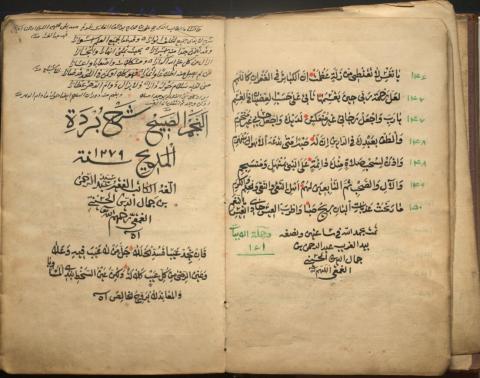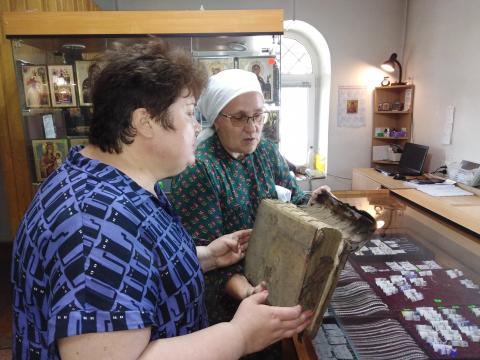
Aims and objectives
This project will improve the recording facilities in the sound archive of the Udmurt Institute for History, Language and Literature by providing the necessary equipment for digitisation and storage of digital samples. Historical data which are stored on cassette and open reel tapes will be collected and a selection of about 600 hours of the available recordings will be made. Most of the material will be related to the endangered Uralic languages like Udmurt, Mari and their cultures.
The collection is stored on approximately 1,000 cassette tapes and an unknown number of open reel tapes. Some of these analogue tapes are very valuable as they contain rare material of endangered languages and dialects.
The aim is to digitise the selected tapes and store the items on digital hard discs which will be kept in the archive and also sent to the British Library and other institutions such as the sound archives in Helsinki, Tartu and Budapest. The estimated size of the digitised collection will be about 1,000 GB.
The Uralic language family consists of 39 languages which are spoken by approximately 25 million people. Most of these languages such as Udmurt and Mari are endangered and some are nearly extinct. In the past during ethnological expeditions many sound data on these languages have been collected by scholars from various countries. This historical sound material is very important for the safeguarding and possible revitalisation of those languages.
Storage conditions of these collections, which are mostly in private houses, are between "sub-optimal" and "impossible", with large annual temperature fluctuations further accelorating deterioration of the carriers. An even greater urgency is caused by the availability of modern replay equipment. Small collections such as these will be lost unless they are preserved through concerted actions, such as this project.
In order to achieve the aims of the project, there will be close collaboration with archives in Tartu (Estonia), Helsinki, Budapest and Saint-Petersburg and the expertise obtained in the previous EAP project will make it possible to successfully complete the project.
This project will provide an example for sound archives in other parts of the Russian Federation and will contribute to the safeguarding of the cultural heritage of this country.
Outcomes
- Listen online now to 6118 recordings
The research team in Izhevsk finished the reconstruction work of many historical sound recordings and further improved the facilities of the local sound laboratory. During the project 657 sound collections of the Udmurt Institute for History, Language and Literature were digitised. The total volume of digitised recordings was 600 hours 20 minutes 53 seconds (or 1.130 TB).
For these recordings collectors used tape-recorders with different speed (from 2.38 sm/sec (15/17 ips) – 19.05 sm/sek (7½ ips), produced in the Soviet Union. The quality of some of these recording is quite poor. Among the collections there are recordings which belonged to the well-known Udmurt ethnographer, poet and folklore researcher Kuzebai Gerd (1898 - 1937). At the end of the 1920s he participated in folklore expeditions to the territory of contemporary Udmurt Republic and used the Edison phonograph with wax cylinders.
The project co-ordinators Tjeerd de Graaf and Victor Denisov reported on the project activities during various conferences with invited lectures and contributed to the publication of a book on Sustaining Indigenous Knowledge: Learning tools and community initiatives for preserving endangered languages and local cultural heritage, which was edited by the Foundation for Siberian Cultures.
The endangered archive material is now housed in the phonogram archive of the Udmurt Institute for History, Language and Literature and copies are made available for researchers elsewhere. These collections include songs, narrations, prayers and incantations devoted to different events. In total there are 2,560 performers presenting 8 regions of the Russian Federation: Udmurt Republic, Republic of Tatarstan (former Tatar Republic), Republic of Bashkortostan (former Bashkir Republic), Republic of Mari-El (former Mari Republic), Kirovsky Region, Permsky Krai (Area) (former Permsky Region), Krasnoyarsky Krai (Area), Tomsky Region, Tyumensky Region. 143 collectors, mainly from the Udmurt Institute and the Udmurt State University, participated in the expeditions.
In the sound collections of the Udmurt Institute nine languages are represented: Udmurt, Mari, Hungarian (Finno-Ugric family of languages); Tatar, Bashkir (Turkic family of languages); Russian, Ukrainian, Belorussian, German (Indo-European family of languages).
A very useful result of the project is the creation of a sound laboratory in Izhevsk which in the future will play an important role in the academic and technical world in Udmurtia. This can be shown as an example for other regions of the Russian Federation. In this way we also hope to receive further support for the ongoing work, where the present project can be presented as an important case study.
Read online the open access article: The use of sound archives for the investigation, teaching and safeguarding of endangered languages in Russia, published in the EAP Anniversary publication From Dust to Digital. The article can also be downloaded as a PDF (432KB).




